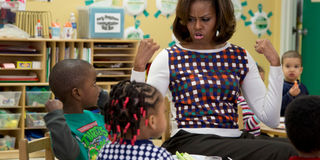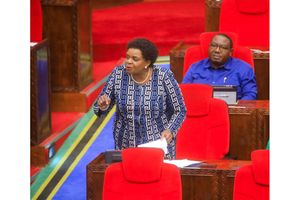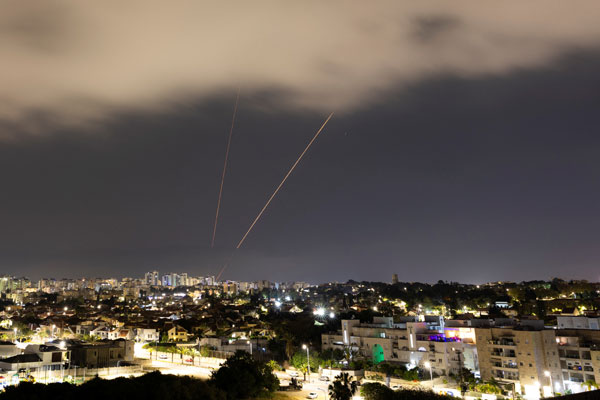Elly is fighting for education equity

When Elly Kaaya was growing up as the youngest of nine children, it wasn’t a given that she would get an education. In fact, it was quite the opposite. “I was born and raised in a family where they never really believed in sending their girls to school,” the now 26-year-old says. “My own family, my own brothers would say they would never send a wife of another man to school, that it was a waste of time and waste of investment to send me to school, because a woman is meant to be married.”
But Elly pushed against the status quo; and became the first in her family to not only go to high school, but also college, with the help of scholarships from organizations AfricAid’s Kisa Project and She’s the First (STF), the latter of which partners with the former and supports girls who will be the first in their families to graduate high school.
As a Kisa Mentor and STF scholar, Elly not only got an education herself but also mentored other young women and girls in her community and developed her own leadership skills. During her second year at St Augustine University of Tanzania, Elly realized there was a lack of job opportunities for college graduates in her community, so she created an entrepreneurship program for her peers.
She brought entrepreneurs to school to share how they started their businesses, provide actionable advice (like how to create a business plan), and host hands-on training sessions where the students learned how to make batiks (colorful dyed fabric) and soap. The project led some of Elly’s peers to build their own businesses, and led She’s the First to honor her as Scholar of the Year.
And Elly didn’t stop there: After graduating with a bachelor’s degree in sociology in 2018, Elly became a She’s the First Fellow, joining a program for STF Scholars and campus chapter members launching community-based projects that further STF’s mission. Elly’s project, My Journey to School, focuses on raising awareness among parents in her community about sending their daughters to school — because, while Elly succeeded in getting her own education, the challenges she faced are still commonplace. According to the United States Agency for International Development (USAID), nearly 98 million girls around the world are not in school.
But now, Elly has a new ally in working to bring that number down: Michelle Obama, who in October 2018 launched the Global Girls Alliance, focused on advancing girls’ education around the world. “Scarce resources, early pregnancies, dangerous commutes, and threats of violence” all factor in to why so many girls are not in school, the former First Lady said in a statement shared with Teen Vogue. “Equally pernicious is something they’re taught from an early age — the idea that because they’re girls, they’re simply unworthy of an education. The Global Girls Alliance is working to break through those barriers by lifting up grassroots leaders already working in communities and by rallying support for these girls in every way that we can. Because the future of our world is only as bright as the future of our girls.”
Elly is one of those grassroots leaders. As an official member of the Global Girls Alliance, she can exchange ideas, resources, and encouragement with other leaders via an online network; as well as benefit from the official Global Girls Alliance Fund, which is raising money through GoFundMe for specific projects. We chatted with Elly shortly after the Global Girls Alliance was announced to talk about her journey, her projects, and her hopes for the future of girls’ education.
Q: What has your involvement with She’s the First meant to you?
A: It meant everything—and when I say everything, it tells me, it tells people around my community, and people around the world that there is no limit for what a woman can become. We need more organizations like She’s the First, we need more people who are very determinant, perseverant, to making a difference without giving up. But also we need to create these opportunities for more people because there are so many people that are going [through] probably worse scenarios than the one that I went through. But when there is no one person to question the system and say, “Here is the chance for you,”...then it’s going to be hard to make a difference.
Q: Tell me about the entrepreneurship program you spearheaded in college. What motivated you to do that, and what kind of response did you get from your classmates?
A: When I went to university, I realized even in places where people are so educated and people are supposed to be very mature...still there was discrimination against women. And women weren’t really given a priority in leadership. In the university I went to, they never believed a woman can be a student president for the university. I wanted to contest for the presidential post, and I did, but people said, “You can’t be a president. You can contest for vice president; otherwise you will just lose, because we don’t vote for women to be president, we don’t believe in women being president.” When I did the contest...I lost it, but I created a seed for change and people were very proud, saying things like, “Elly, you tried to do this. Nobody else ever done that.”
After I lost, I wanted to keep doing things...that would benefit women and show the community that...women are capable and they can create chances and they can change the world. [...] So I decided I would do something to help them create jobs for themselves. It really brought very impactful feedback because people really had learned new skills that they really applied after university.
Q: And now you’re working on My Journey to School. Tell me about that.
A: My Journey to School is basically for the girls in my community to know about and understand sexual reproductive health and rights — so they know their sexual reproductive health skills, and they know their rights to sexual reproductive health. But also I work with parents. When I was growing up, my mom didn’t know what a sanitary towel was. My mom had nine kids and I’m the last born. I’m so proud of my mom, I really love my mom, but I also understand that she grew up in a community where they never believed in women. And therefore she never really knew what were the rights for her.
Q: What was it like meeting Michelle Obama?
A: In the discussion with the Obama Foundation, here came Michelle Obama into the room. She already knew my story. I kept saying, “This was one of the most important days of my life.” I really felt very happy, it was an exciting moment, and she is such an amazing woman. (Teen Vogue)




